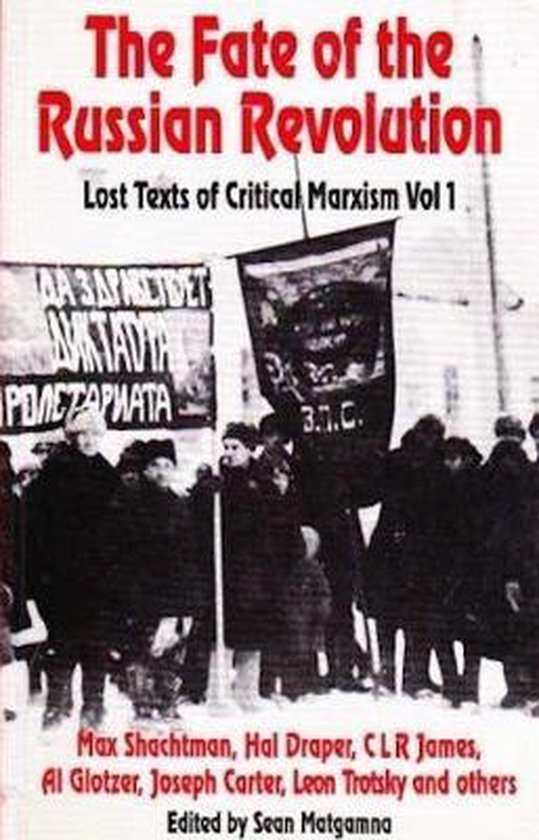
The Fate of the Russian Revolution: Lost Texts of Critical Marxism
This book opens with a quotation from Albert Einstein, stating the case for socialism. Einstein, like almost every great mind of the 20th century who concerned himself or herself with the welfare of the working people, wanted common ownership and a democratic planned economy. But Einstein was stumped by the enigma of the USSR. He saw that there ''the planned economy'' was ''accompanied by the complete enslavement of the individual'' and so was ''not yet socialism''. It seemed to represent, on the one hand, a step in the right direction, because of the planned economy, but on the other hand, not a step that Einstein wanted to take.
Very few thinkers got anywhere near resolving the paradox. The greatest was Leon Trotsky. But Trotsky got no further than assessments of the USSR which he himself described as provisional and needing review if the system proved to have some solidity and viability, rather than being only a freak concatenation of counter posed forces.
When the Stalinist USSR showed that it did have that viability - by becoming the world's second superpower, in the 1940s - the task of reworking Trotsky's analysis had to be undertaken, not by well-provided professors in famous research institutes, but by tiny groups of Marxists harassed by the exigencies of day-to-day political activity in hostile circumstances. They have not become as famous as Einstein, or Trotsky. Their names - Max Shachtman, Joseph Carter, Hal Draper, C L R James - are largely unknown. But the ''lost texts'' of those ''critical Marxists'' - here unearthed for the first time from dusty archives, and well-presented with a substantial introduction - are a central part of the intellectual history of the 20th century. Every educated person needs to know about them, just as much as he or she needs to know about Einstein's theory of relativity.
| Auteur | | Max Shachtman |
| Taal | | Engels |
| Type | | Paperback |
| Categorie | | Mens & Maatschappij |